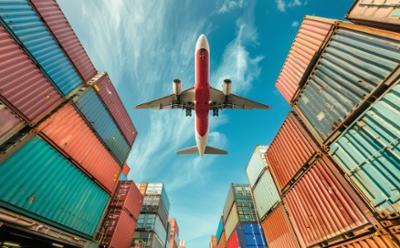

Intermodality and SAF development, some of the challenges for greater aviation sustainability in Spain
The advances and main challenges of air transport on its way to greater development of its sustainable activity will be one of the topics to be discussed at the third edition of Global Mobility Call, from 19 to 21 November.
The creation of sustainable alternatives to meet the increase in demand for air transport in Spain and to concurrently speed up the reduction of its CO emissions2 raises the need for the aviation industry to move forward with new intermodal transport schemes and the development of sustainable aviation fuels (SAF) in the country.
The third edition of Global Mobility Call, the international sustainable mobility event organised by IFEMA MADRID and Smobhub from 19 to 21 November 2024, will bring together representatives from this sector to analyse the progress and challenges raised by the decarbonisation of the airline industry.
The Spanish airport manager AENA estimates that in 2024 air traffic at the country's terminals will grow by up to 8.3% compared to 2023, so this year the figure could exceed 300 million passengers, with 8.3% being equivalent to 306.7 million passengers. An example of this improved performance is the 11.4% increase in the number of passengers at airports in the first five months of the year compared to the same period last year.
Air transport is one of the most polluting modes of transport, being responsible for around 2.5% of global CO2 emissions but this percentage is increasing rapidly, far ahead of trains, cars or maritime traffic. In the European Union, flights account for approximately 3.7% of total greenhouse gas emissions, according to the European Environment Agency.
According to data from the sector in Spain, 67% of air transport emissions are generated by long-haul flights and with planes with a capacity of more than 160 passengers. If we add to this medium-sized aircraft, with the capacity for between 80 and 160 passengers and for short and medium-distance journeys, emissions reach 90 percent.
This is why the sector faces important challenges such as reducing its emissions to advance energy and technological efficiency on which aviation activity is based, mainly in terms of the development of sustainable fuels. There is also a need to better manage resources and waste at airports.
Solutions for citizens and the aviation sector
Intermodality and the development of the sustainable aviation fuels (SAF) industry were the main proposals presented in the second edition of Global Mobility Call by the then president of Iberia, Fernando Candela.
In his participation he expressed the need to have real and effective intermobility alternatives for the citizens of cities and towns in Spain, all the more so when the public debate is proposing the elimination of short and medium-haul flights as a way of reducing pollution in the sector.
For example, Terminal T4 of Adolfo Suárez Madrid-Barajas Airport must be connected to the high-speed railway. "This should be a national objective, which should resolve this debate based on what science and aircraft models say, based on technology and not ideology," said Candela.
He also recalled a study by the consulting firm PwC which states that the development of the SAF fuel industry in Spain could generate 56 billion euros for the country's GDP and create 270,000 new jobs, many of them even in places which are part of the so-called “empty Spain” through energy generation projects.
“Public investment and the collaboration of all administrations is essential to ensure the supply of SAF in response to existing demand and to make Spain a leader in sustainable aviation fuels; it would be irresponsible not to take the initiative and leadership in this direction," said the executive.





